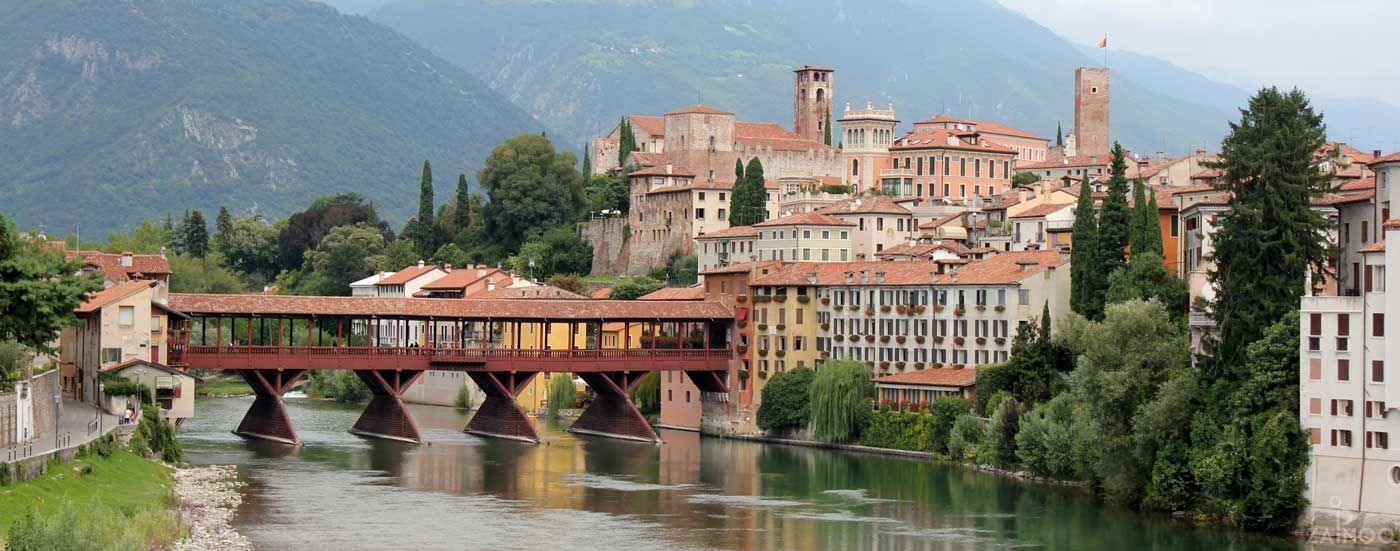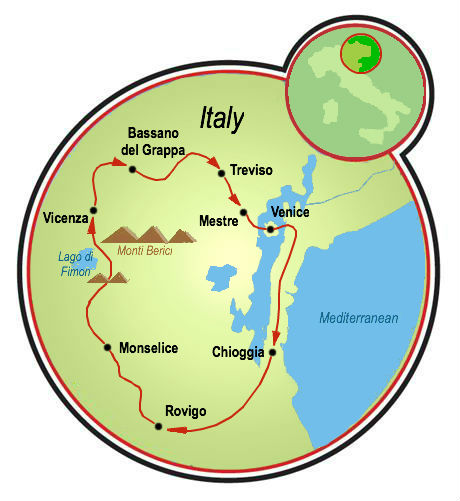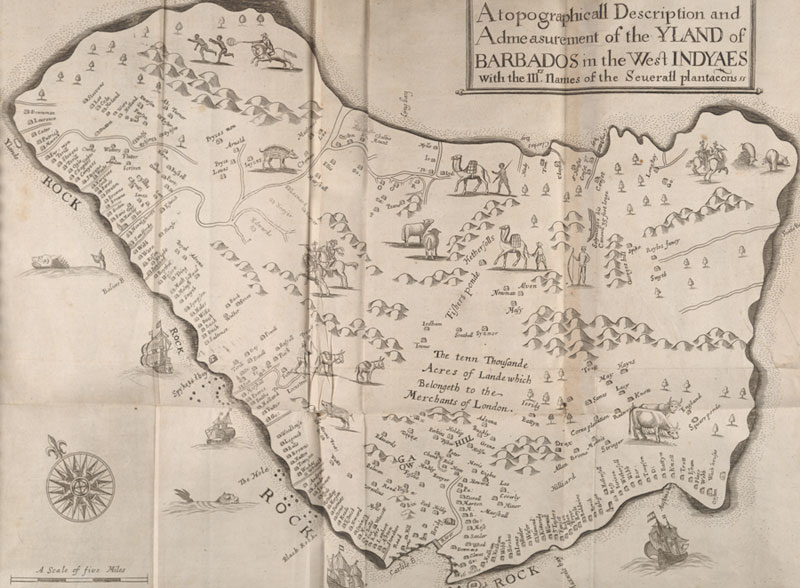BASSANO FAMILY OF ENGLAND & ITALY

 Jeronimo Bassano was an Italian musician who
is noteworthy
for having been head of a family of musicians — Anthony Bassano, Jacomo, Alvise, Jasper, John
and Baptista — who moved from Venice to England and the household of Henry VIII to serve the
court. Jeronimo himself never moved, however, but was listed in Venice as a "Maestro of the
trumpets and shawms." Through Jeronimo's son Jacomo, who alone among his brothers did not join
the recorder consort to Henry VIII, but kept his primary residence in Venice, Jeronimo is very
likely a great-grandfather to the composer Giovanni Bassano.[1]
Jeronimo was the son of Baptista "Piva" of Bassano del Grappa, a town 35 miles from Venice.
Baptista was a musician who played the piva, a small bagpipe. He was the son of Andrea de
Crespano who was from the village of Crespano, about nine miles east of Bassano. Andrea,
Baptista and Jeronimo were all described as musicians and musical instrument makers.[2] At the
beginning of the 16th century, Jeronimo moved from Bassano to Venice where he was described as
"Maestro Hieronimo", piffero player to the Doge of Venice between 1506 and 1512.[3] The
historian A.L. Rowse in his correspondence to The Times in 1973 claimed that the Bassanos were
Jewish[4] and Dr. David Lasocki of Indiana University (or rather his co-author Roger Prior)
claimed in his 1995 book that the family were converted Jews.[5] However, Giulio M. Ongaro in
his "New Documents on the Bassano Family" in Early Music[6] and Alessio Ruffatti (who did
research in the archives of Bassano del Grappa assisted by Professor Pier Cesare Ioly Zorattini)
both argue that the Bassanos who moved to England were not of Jewish origin.[7]
Jeronimo Bassano was an Italian musician who
is noteworthy
for having been head of a family of musicians — Anthony Bassano, Jacomo, Alvise, Jasper, John
and Baptista — who moved from Venice to England and the household of Henry VIII to serve the
court. Jeronimo himself never moved, however, but was listed in Venice as a "Maestro of the
trumpets and shawms." Through Jeronimo's son Jacomo, who alone among his brothers did not join
the recorder consort to Henry VIII, but kept his primary residence in Venice, Jeronimo is very
likely a great-grandfather to the composer Giovanni Bassano.[1]
Jeronimo was the son of Baptista "Piva" of Bassano del Grappa, a town 35 miles from Venice.
Baptista was a musician who played the piva, a small bagpipe. He was the son of Andrea de
Crespano who was from the village of Crespano, about nine miles east of Bassano. Andrea,
Baptista and Jeronimo were all described as musicians and musical instrument makers.[2] At the
beginning of the 16th century, Jeronimo moved from Bassano to Venice where he was described as
"Maestro Hieronimo", piffero player to the Doge of Venice between 1506 and 1512.[3] The
historian A.L. Rowse in his correspondence to The Times in 1973 claimed that the Bassanos were
Jewish[4] and Dr. David Lasocki of Indiana University (or rather his co-author Roger Prior)
claimed in his 1995 book that the family were converted Jews.[5] However, Giulio M. Ongaro in
his "New Documents on the Bassano Family" in Early Music[6] and Alessio Ruffatti (who did
research in the archives of Bassano del Grappa assisted by Professor Pier Cesare Ioly Zorattini)
both argue that the Bassanos who moved to England were not of Jewish origin.[7]
From Wikipedia:
1. ^ Lasocki, David, with Roger Prior, The Bassanos: Venetian musicians and instrument makers
in England, 1531-1665 (Cambridge: Scolar Press, 1995), pp. 217, 251-256.
2. ^ Pio, Stefano (2012). Viol and Lute Makers of Venice 1490 -1630. Venezia, Italy: Venice
research. pp. 132–147. ISBN 9788890725203.
3. ^ Ruffatti, Alessio (2 December 1998). "La Famiglia Piva-Bassano Nei Document Degli Archevi
Di Bassano Del Grappa". Musica e Storia 6 (2).
4. ^ "Revealed At Last, Shakespeare's Dark Lady.", The Times January 29, 1973: 12.
5. ^ David Lasocki; Roger Prior: The Bassanos: Venetian Musicians and Instrument Makers in
England, 1531-1665, Aldershot, Hampshire: Scolar Press (1995)
6. ^ Ongaro, Giulio M. (August 1992). "New Documents on the Bassano Family". Early Music 20 (3):
pp. 409–13. doi:10.1093/earlyj/XX.3.409.
7. ^ Ruffatti, Alessio. "Italian Musicians at the Tudor Court--Were They Really Jews?" Jewish
Historical Studies 35 (1996-1998): 1-14., Jewish Historical Society of England
From Wikipedia, the free encyclopedia
Anthony Bassano was a 16th-century Italian musician.
Bassano, born in Bassano del Grappa, Italy, was one of six sons of Jeronimo Bassano (Anthony,
Jacomo, Alvise, Jasper, John and Baptista) who moved from Venice to England to the household of
Henry VIII to serve the court, probably in 1540. Of his ten children, the five sons (Mark
Anthony, Arthur, Edward, Andrea and Jeronimo) all served as musicians to the court of Henry
VIII, and a daughter (Lucreece Bassano) married Nicholas Lanier the Elder, grandfather of the
artist-musician Nicholas Lanier.
The historian A.L. Rowse in his correspondence to The Times in 1973 claimed that the Bassanos
were Jewish[1] and Dr. David Lasocki of Indiana University claimed in his 1995 book that the
family were converted Jews.[2] However, Giulio M. Ongaro in his "New Documents on the Bassano
Family" in Early Music[3] and Alessio Ruffatti (who did research in the archives of Bassano del
Grappa assisted by Professor Pier Cesare Ioly Zorattini both argued that the Bassanos who moved
to England were not of Jewish origin .[4]
Besides being wind players in the King's band, the Bassanos were also instrument makers.[5]
Anthony was recorded as a foreigner, formerly Queen Elizabeth's musician, resident in the
London parish of St Olave and All Hallows Staining, in 1607. He was married with five children,
all born in England.[6]
References:
1.Jump up ^ "Revealed At Last, Shakespeare's Dark Lady.", The Times January 29, 1973: 12.
2.Jump up ^ David Lasocki; Roger Prior: The Bassanos: Venetian Musicians and Instrument Makers in England, 1531-1665, Aldershot, Hampshire: Scolar Press (1995)
3.Jump up ^ Ongaro, Giulio M. (August 1992). "New Documents on the Bassano Family". Early Music 20 (3): pp. 409–13. doi:10.1093/earlyj/XX.3.409.
4.Jump up ^ Ruffatti, Alessio. "Italian Musicians at the Tudor Court--Were They Really Jews?" Jewish Historical Studies 35 (1996-1998): 1-14., Jewish Historical Society of England
5.Jump up ^ Roger Prior, "Jewish Musicians at the Tudor Court", Musical Quarterly, Vol 69 number 2 (Spring 1983), pp. 253-265.
6.Jump up ^ Strype, John, Annals of the Reformation, vol. 4 (1824), 571.
##The Bassanos, Venetian Musicians and Instrument Makers in England, 1531–1665, by David Lasocki and Roger Prior, published by Scholar Press
Though the articles differ somewhat from the pedigree below, both are presented here.
|
Family of BASSANO of ENGLAND & ITALY
Santo ^ Bassano =
b a 1440 |
Bassano, Del Grappa |
Venice - Italy |
______________|
|
Jeronimo ^ Bassano =
'Maestro of trumpets & shawms |
b bef 1460 |
Bassano, Del Grappa |
Venice, Italy |
____________|_______(See Chart at bottom of page for other children)
|
Anthony 'Antonio' ^ Bassano = Elina ^ Denazzi dau. Beneditto ^ Denazzi
b a1511 | b a1515 Venice, Italy
Bassano, Del Grappa I. |
m 10 Aug 1536 |
Venice Italy |
d 19 Oct 1574 | b in ?Venice Italy?
All Hallows Barking |
London England |
___________________________________________|___________________________________________________
| | | | | |
| Angelica Bassano Margaretta Bassano Isabella Bassano Mark Anthony Bassano Arthur Bassano
| b 1537 b 29 Jul 1541 b 13 Mar 1544/5 b 1546 b 31 Oct 1547
| Venice, Italy London England London England London England London England
| m
|
|
| d 1582 d 1599 b 1624
|
|____________________________________________________________________________________________
| | | | |
Nicholas Bassano Edward Bassano Lucretia 'Lucreece' Bassano Andrea Bassano Jeronimo Bassano
cb 24 Jan 1550 b a1551/2 c 26 Sep 1553 b a1554/5 cb 11 Mar 1558/9
London, Eng London, Eng London, Eng London Eng All Hallows Bark.
m 23 Feb 1570/1 Parish, London E.
All Hallows Barking Parish
d by 1568 d 1626 London, Eng. (Arr./Queen) d 1626 d 1635
= Nicholas Lanier the Elder Wltham Abbey
d 4 Jan 1634 Essex, Eng.
Greenwich, Kent, England
b St. Alphage, E. Greenwh.
|
|
Besides their musician appointments, by 1600 the Bassanos' most lucrative trade was in the
export of calfskins. Butchers and tanners were among the wealthest men in sixteenth-century
England. Leather was in demand for the bellows of both furnaces and organs as well as for
clothing and saddles. Export licenses were esclusive, and in Elizabethan times they were
freguently granted as favors in kind for services rendered to the Queen. Many of the customs
ledgers that could shed light on such activities were discontinued on the accession of James I.
The best known patent granted to a musician was that of 1583 to William Byrd, initially shared
with Thomas Tallis, to print music. Its commercial value must have been inferior to the
Bassanos' patent on the export of leather. The quantities they were entitled to export were
very considerable for the time. Their patent, granted with effect from 27 August 1593 to Arthur,
Andrew, and Jerome, permitted them to deputize in their trade affairs, as they almost certainly
did from time to time in their musical affairs.
The Queen granted licence to her musicians Arthur, Andrew and Jeronimo Bassano ... to transport
6,000 dicker of calveskins out of Bristol. Jerome is likely to have been the chief figure in
the leather business, simply because he possessed far more land than his brothers. Land
appropriate for grazing etc., are mentioned repeatedly in his will where he references lands
and manors in Waltham Abbey (Walthamholicrosse), at Hoyden House and Woodridden Farm and even
a principla homestead called 'Pegrimes' at Southend. These properties were repleat with barnes,
stables, edifices, horses and swine, not to mention much highly valued goods. This dealing in
animals was of high position as Edward I with the leather trade is suggested by the fact that
his daughter Dorcas married a skinner. It was of no low profession. And it would seem that
the combination of leather export to France and Italy was complimented by the Bassanos'
further earlier granted activities in the importing of wine trade and the contracts they had
in place there.
 Being a musician did not remove these men from the ways of the world. Andrew had investiments
in timber, wheat and malt and he leased timber-producing land at Horne Court, etc. These
court musicians were business men wise in the ways and work of the world. For Andrew, since
'Oak' was good wood for making of musical instruments, he could complete his own cycle by
growing from seed the wood to make the instruments he made himself. Thus a Robert Lanier
in Barbados being a 'butcher' is not so much a surprise, especially if he held the land and
means whereby to support his business and industry. Land holding was the 'industry base' of
the time and what you could produce and make of it. Over 10,000 acres of Barbados land did
belong to the merchants of London. Cattle were brought in and land and rains created acres of
grazing lands and ponds for the drier season. Note the map which shows cattle and hogs as part
of the period land 'industry' of Barbados. It wasn't just sugar plantations. Even then, a
butcher was gauranteed a livelihood just supplying those who constituded the sugar plantation
productivity with meat and leather goods. Hundreds of ships a year would come bringing in
white servants, slaves, various cattle and the like to support the island's industry.
Being a musician did not remove these men from the ways of the world. Andrew had investiments
in timber, wheat and malt and he leased timber-producing land at Horne Court, etc. These
court musicians were business men wise in the ways and work of the world. For Andrew, since
'Oak' was good wood for making of musical instruments, he could complete his own cycle by
growing from seed the wood to make the instruments he made himself. Thus a Robert Lanier
in Barbados being a 'butcher' is not so much a surprise, especially if he held the land and
means whereby to support his business and industry. Land holding was the 'industry base' of
the time and what you could produce and make of it. Over 10,000 acres of Barbados land did
belong to the merchants of London. Cattle were brought in and land and rains created acres of
grazing lands and ponds for the drier season. Note the map which shows cattle and hogs as part
of the period land 'industry' of Barbados. It wasn't just sugar plantations. Even then, a
butcher was gauranteed a livelihood just supplying those who constituded the sugar plantation
productivity with meat and leather goods. Hundreds of ships a year would come bringing in
white servants, slaves, various cattle and the like to support the island's industry.
|